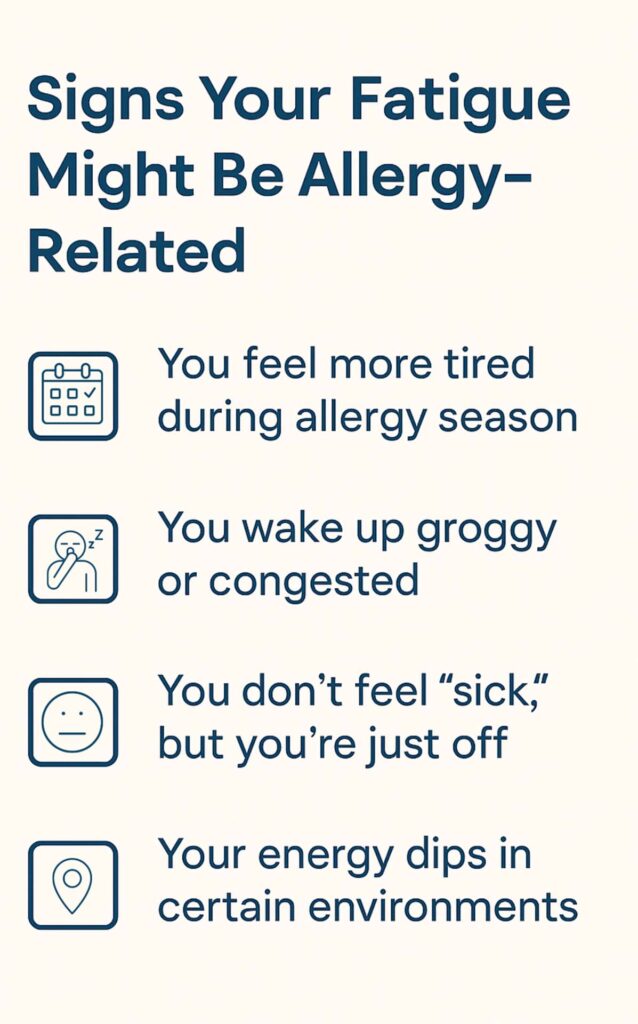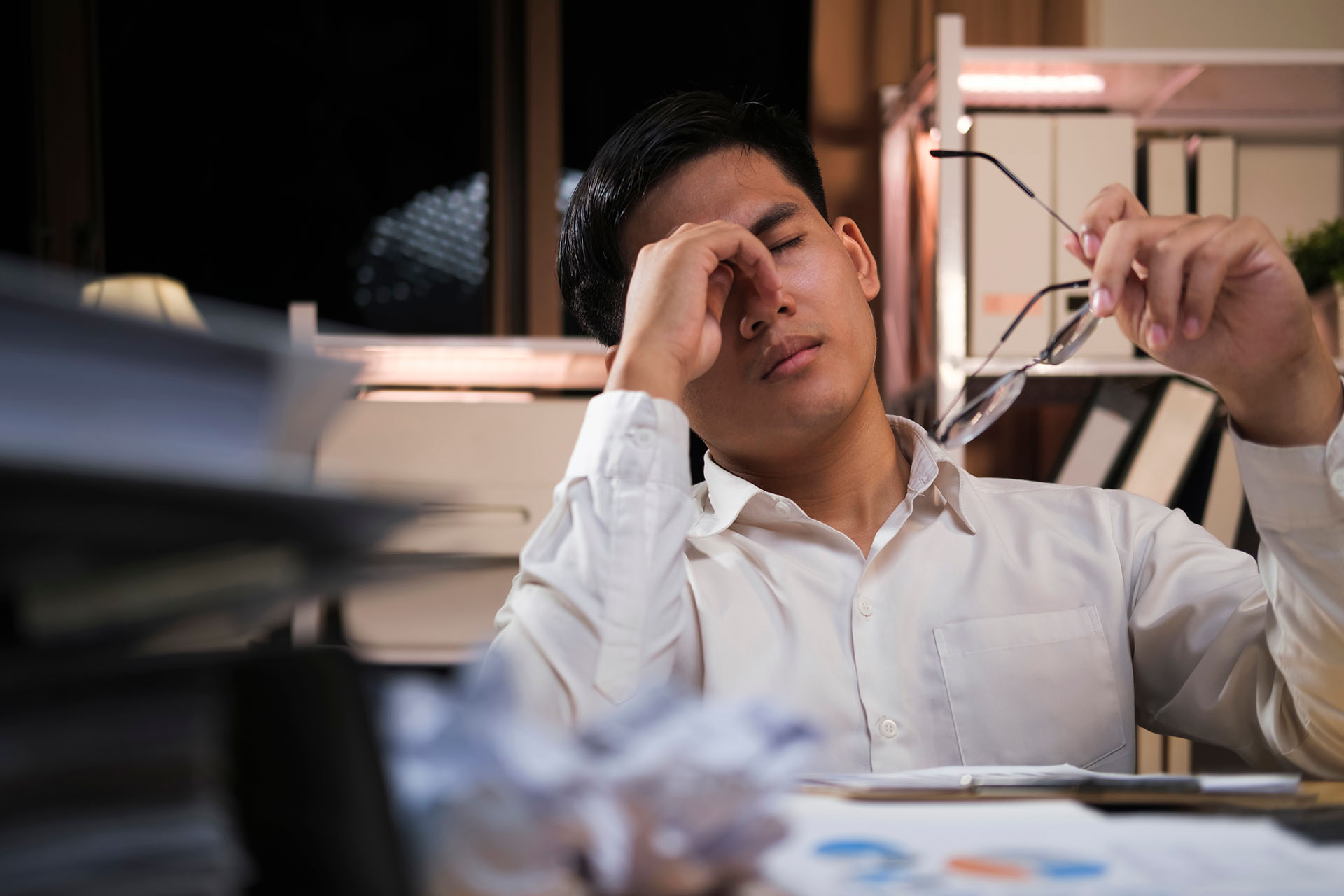Ever feel like you’re dragging yourself through the day, even after a full night’s sleep? You’re not alone. Many people chalk up their constant fatigue to stress, poor sleep, or just “getting older.” But here’s something you might not have considered: your allergies could be the real reason you’re always feeling wiped out.
Almost 26% of US adults experience seasonal allergies.
National Center for Health Statistics (CDC)
Allergies don’t always show up as sneezing fits or itchy eyes. Sometimes, they fly under the radar, quietly messing with your energy levels, your sleep, and your focus. And if you’re someone who deals with seasonal allergies or indoor allergens year-round, that constant drain could be taking a bigger toll than you think.
Nearly 20% of adults suffer from general fatigue.
National Library of Medicine (Source)
So what’s really going on, and how do you know if allergies are to blame?
Can Allergies Really Make You Tired? (Yes.)
The short answer: absolutely.
When you’re exposed to something you’re allergic to, like pollen, dust, or pet dander, your immune system kicks into defense mode. It sees these harmless particles as threats and starts producing histamines to fight them off. That internal battle takes a lot of energy.
Add to that the constant inflammation, painful sinus pressure, and congestion that often comes with allergies, and your body’s working overtime. Even if you’re not coughing or sneezing, your system might still be drained.
And let’s not forget the sleep factor. Allergies often lead to poor-quality sleep, whether it’s from a stuffy nose, post-nasal drip, or just waking up more during the night. It’s hard to feel refreshed when your body doesn’t get the deep rest it needs to recharge.
How to Tell If Allergies Are the Cause
Not sure if allergies are what’s draining your energy? Here are a few signs to look for:

You feel more tired during allergy season. If your fatigue shows up like clockwork in spring or fall, pollen could be playing a role.
You wake up groggy or congested. Nighttime exposure to allergens like dust mites or pet dander can mess with your sleep, even if you’re not fully waking up.
You don’t feel “sick,” but you’re just off. No fever, no major cold symptoms, but you’re still foggy, sluggish, and wiped out.
Your energy dips in certain environments. Notice more fatigue after spending time outside, cleaning, or visiting certain places? That’s a pattern worth tracking.
The tricky thing about allergy-related fatigue is that it doesn’t always look dramatic. But over time, that low-level exhaustion adds up. Understanding the cause is the first step to taking back your energy.
What You Can Do About It
If allergies are behind your constant fatigue, the good news is there’s a lot you can do, starting with some small changes that make a big impact:
- Check daily pollen and air quality forecasts. Plan your outdoor time for low-pollen hours (usually early morning or right after rain).
- Shower before bed. It helps rinse off pollen and other allergens that stick to skin and hair during the day.
- Keep your home allergy-friendly. Clean air filters, vacuum often, and consider using an air purifier if indoor allergens are a problem.
- Time your allergy meds right. Some people find that taking antihistamines before symptoms spike (like at night or early morning) works best.
- Track your symptoms. Use an app like Best Life to connect the dots between your tired days and environmental triggers like weather, pollen, or air quality.
You don’t have to guess. When you start spotting patterns in your energy, sleep, and surroundings, it’s easier to take action that actually helps.
Related: How Best Life App’s Allergy Tracking Features Help You Sleep Better
Your Energy Deserves Answers
Feeling tired all the time isn’t just frustrating, it gets in the way of how you want to show up in your day. And while allergies might not be the first thing you think of, they could be a hidden reason your energy’s been off.
The more you understand what your body’s reacting to, the easier it is to take control. Start paying attention to when you feel most drained, and what might be happening around you, pollen spikes, poor air quality, even your sleep habits.
You don’t have to figure it all out on your own. With tools that help you track symptoms, environment, and energy levels all in one place, you can finally stop guessing and start feeling better.

